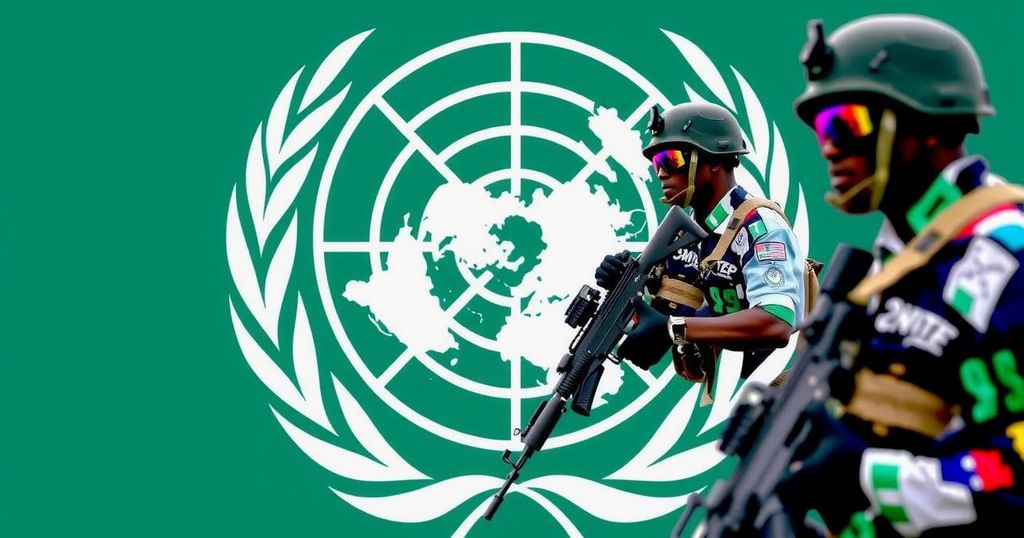The Complicated Withdrawal of U.N. Peacekeepers from the Democratic Republic of the Congo
The Democratic Republic of the Congo (DRC) seeks the departure of the U.N. peacekeeping force due to dissatisfaction with its effectiveness. However, escalating violence from Rwanda-backed rebels complicates this request, threatening the region’s stability and security. The DRC’s mineral wealth entangles international interests, further complicating the situation as millions of displaced individuals lack adequate protection.
The situation in the Democratic Republic of the Congo (DRC) remains precarious as the government expresses the desire for the withdrawal of the United Nations peacekeeping force, known as MONUSCO, amidst escalating violence from Rwanda-backed rebels. Initially slated for departure in December, the peacekeepers are now compelled to remain due to increasing conflicts that threaten the stability of the mineral-rich eastern region, a vital area of interest for the global economy. Despite the DRC’s plea for MONUSCO’s exit, many Congolese citizens voice dissatisfaction with the U.N. presence, feeling that it has not effectively mitigated the ongoing conflict dominated by numerous armed groups, including the M23 rebels supported by Rwanda. A recent Associated Press report reveals the complexities surrounding the anticipated withdrawal. The conflict, which features both external and internal actors, has resulted in significant displacement, with millions lacking adequate protection from armed groups. While the Congolese military is urged to assume greater security responsibilities, public skepticism remains about its capability amid criticism of the U.N. mission’s effectiveness and engagement levels. The deteriorating security situation is exacerbated by the geopolitical interests surrounding the DRC’s vast mineral resources, particularly cobalt necessary for modern technologies. The involvement of Rwandan forces and confirmed mineral smuggling has rendered the region’s security landscape even more challenging, casting doubt on the future of MONUSCO’s planned drawdown.
The backdrop of the current conflict involves the Democratic Republic of the Congo (DRC), which is rich in critical minerals but plagued by prolonged violence fueled by various armed groups. With the U.N. peacekeeping force established over two decades ago, its mandate has become increasingly complex due to rising tensions, especially from the M23 rebels, who are allegedly supported by the Rwandan government. The DRC’s government perceives the U.N. presence as increasingly unwelcome amid a public sense of failure on the part of the peacekeepers to address ongoing security threats. Moreover, the international interest in eastern Congo’s mineral wealth plays a significant role in the region’s instability, with various external factions seeking to exploit these resources, complicating the peacekeeping efforts.
In summary, while the DRC government wishes to expel U.N. peacekeepers, the escalating violence and entanglements related to mineral exploitation, primarily attributed to the M23 rebels and their Rwandan support, complicate this aspiration. The tensions highlight the challenges in achieving political stability in a resource-rich area fraught with conflict and diverse military interests. The U.N. mission, facing increasing local discontent, is caught in a dilemma, necessitating a careful evaluation of its withdrawal plans against the backdrop of ongoing violence and humanitarian needs.
Original Source: apnews.com




Post Comment